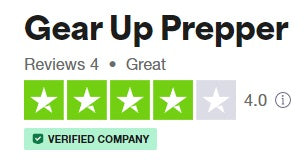Prepper's Guide to First Aid: Essential Tips and Techniques
In a world filled with uncertainties and unexpected challenges, being prepared is essential. For preppers, individuals who are proactive in planning for emergencies and disasters, having a robust knowledge of first aid is paramount. The ability to provide medical assistance during a crisis can mean the difference between life and death. In this guide, we will explore essential first aid tips and techniques that every prepper should know.
- Build a Comprehensive First Aid Kit
Your first step in becoming a capable prepper is to assemble a well-equipped first aid kit. Ensure that it includes a variety of bandages, gauze pads, adhesive tape, antiseptic wipes, scissors, tweezers, and disposable gloves. Additionally, include essential medications, such as pain relievers, antihistamines, and any prescription drugs your family members may need. Don't forget to regularly check and update your kit to ensure that all items are in good condition and within their expiration dates.
- Learn Basic Life-Saving Techniques
Preppers should familiarize themselves with basic life-saving techniques like CPR (Cardiopulmonary Resuscitation) and the Heimlich maneuver. These skills can be lifesavers in critical situations. Consider taking a certified first aid and CPR course to gain hands-on experience and certification.
- Know How to Control Bleeding
During an emergency, controlling bleeding is a crucial skill. Learn how to apply direct pressure to wounds using sterile dressings or clean cloth to stop bleeding. Elevating the injured area, if appropriate, can also help reduce blood flow. Always remember that stopping severe bleeding is a top priority in first aid.
- Master the Art of Wound Care
Preppers should understand how to properly clean and dress wounds. Start by cleaning the wound with mild soap and clean water to prevent infection. Applying antibiotic ointment and covering the wound with sterile dressing helps promote healing and minimize infection risk. Changing dressings regularly and monitoring for signs of infection is equally important.
- Treat Burns and Scalds
Burns can happen easily, especially in crisis situations. Knowing how to provide immediate relief and treatment is vital. For minor burns, cool the affected area under running water for several minutes. For more severe burns, seek professional medical attention as soon as possible. In the meantime, cover the burn with a clean, non-stick bandage to protect it from infection.
- Be Prepared for Fractures and Sprains
Accidents can result in fractures or sprains, making it essential for preppers to know how to immobilize injured limbs. Splinting a broken bone using improvised materials like boards, cardboard, or rolled-up newspapers can help prevent further damage until professional medical help arrives.
- Learn About Common Medical Conditions
Having a good understanding of common medical conditions, such as allergies, asthma, diabetes, and seizures, can be invaluable in emergency situations. Ensure you know how to recognize the signs and symptoms of these conditions and have the necessary medications and supplies on hand for family members who may be affected.
- Practice Good Hygiene and Infection Control
During a crisis, maintaining proper hygiene and infection control is crucial. Preppers should be well-versed in handwashing techniques and understand how to minimize the risk of spreading illnesses, especially in confined or crowded environments.
- Create an Emergency Medical Plan
In addition to your first aid supplies and skills, preppers should develop an emergency medical plan. This plan should include contact information for local healthcare providers, hospitals, and emergency services. Also, consider designating a medical leader within your prepping group who can take charge of medical decisions during emergencies.
- Stay Informed and Keep Learning
Finally, never stop learning and improving your first aid skills. Stay up-to-date with the latest medical techniques and best practices by attending workshops, reading books, and participating in online forums or communities dedicated to prepping and first aid.
In conclusion, being a prepared prepper involves more than just stockpiling supplies. It requires knowledge and skills, especially when it comes to first aid. By following these essential tips and techniques, you can become a valuable asset in your prepping community, ensuring the safety and well-being of yourself and those around you during challenging times. Always remember that being prepared today can make all the difference tomorrow.






